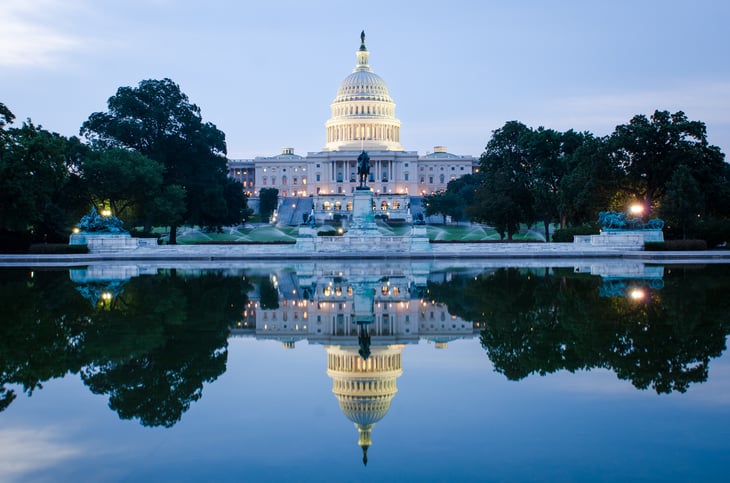
Some retirees could see smaller income tax bills next spring if a new bill in Congress becomes law.
HR 8331 would waive required minimum distributions for the 2022 tax year. That’s a nice way of saying Uncle Sam would not force older folks to withdraw more money than necessary from their retirement accounts this year.
That could lower retirees’ taxable income for 2022 and, in turn, their tax bill that’s due by April 2023.
The legislation was introduced in the House of Representatives without fanfare on July 12. It’s sponsored by Rep. Warren Davidson (R-Ohio). Read on to learn what you should know about it.
What is an RMD?

Required minimum distributions, or RMDs, are essentially a minimum amount of money that you must withdraw from certain types of retirement accounts every year once you reach a certain age, which is now age 72 for most folks.
Most types of retirement accounts are subject to RMDs, including 401(k)s and traditional individual retirement accounts (traditional IRAs).
For more of the nitty-gritty, check out “9 Words Every Taxpayer Needs to Know.”
How RMDs affect income taxes

RMDs are generally considered taxable income by the IRS. After all, the whole reason Uncle Sam forces folks to make these withdrawals is so that the government can collect its cut.
So, it’s likely that an RMD would increase a retiree’s taxable income. And a higher taxable income usually means a bigger tax bill (or smaller tax refund). It could even mean a higher tax rate, if the additional taxable income happened to push a retiree into a higher tax bracket.
What happens next?

HR 8331 has merely been introduced in the House and sent to the Committee on Ways and Means, which is the House’s chief tax-writing committee. The bill must be passed by Ways and Means and then by the full House, and then passed in identical form by the Senate, before it could be sent to the president’s desk to be signed into law.
The odds of any given federal bill becoming law are poor because most bills never advance out of committee. But there is precedent for HR 8331: The Coronavirus Aid, Relief, and Economic Security Act — better known as the CARES Act — suspended required minimum distributions for 2020.
The CARES Act became law in March 2020, amid a bear market and a recession. Supporters of the RMD waiver for 2020 argued that it would spare retirees from having to withdraw more than necessary from their retirement accounts while the stock market was down, thereby giving their account balances more time to rebound.
It’s an argument one could make today, with a bear market ongoing and the annual inflation rate now at 9.1%, the highest since November 1981.
What can you do?

To let your representatives know how you feel about HR 8331, contact them.
To learn more about the bill, check it out at Congress.gov.





Add a Comment
Our Policy: We welcome relevant and respectful comments in order to foster healthy and informative discussions. All other comments may be removed. Comments with links are automatically held for moderation.